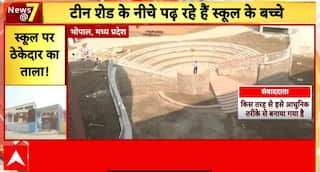Japanese Researchers Plan To Launch Satellite Made Of Wood In Space By 2024
The tested wood specimens did not show any deformation nor did they undergo any mass change before and after space exposure, the scientists said.

A team of researchers in Japan want to put a wooden satellite into orbit by 2024. Kyoto University in collaboration with Japanese logging giant Sumitomo Forestry tested a high durability wood at the International Space Station (ISS) to see whether the terrestrial materials could withstand the challenges of orbital life. Their experiments showed the wood samples underwent minimal deterioration and maintained good stability, reported the Independent.
Preliminary inspections like strength tests and crystal structural analyses, of the wood samples was also done once they were brought back to Earth from the space station by Japanese astronaut Koichi Wakata.
The samples exposed to extreme conditions in space for 10 months did not show any signs of cracking, warping, peeling or surface damage, according to the statement released by the Kyoto University statement, reported the media house.
The tested wood specimens did not show any deformation nor did they undergo any mass change before and after space exposure, the scientists further said.
The international research group is planning to use the Magnolia wood – “Hoonoki” in Japanese in the LignoSat satellite, slated to be jointly launched in 2024 by Nasa and Japan’s space agency Jaxa, Independent reported.
Magnolia has relatively high workability, dimensional stability and overall strength, making its properties ideal for the mission, according to the researchers.
“Wood’s ability to withstand simulated low earth orbit – or LEO – conditions astounded us,” Koji Murata, head of the research effort, said in 2021, as reported by ,Independent.
“We... want to see if we can accurately estimate the effects of the harsh LEO environment on organic materials,” Murata further said.
Scientists want to use wood as it is environmentally friendly, easier to produce and can be disposed off better at the end of a satellite’s life.
Such wooden satellites may also be designed to completely burn up on re-entry into the atmosphere and even if small fragments did survive, they may decompose easily.
Related Video
Southern Rising Summit 2024: How Important is Self-Awareness? Insights from Anu Aacharya | ABP LIVE







































